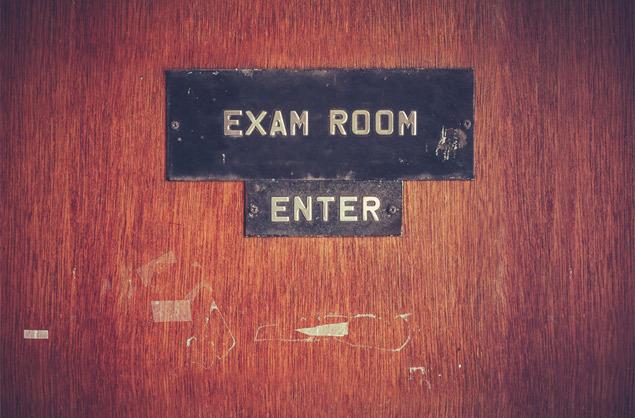Every final exam is different, both in content and layout. Your study methods should reflect those differences. Instead of stressing out about your upcoming finals, take a moment to reflect on how your exams will be structured. Ask your teachers if you do not know. Then, get to studying in a format-appropriate way.
Do not forget about the library, either! Browse online catalogs to search for books at your school and local library that are related to your final project theme. Use the “keyword” and “topic” functions if you are not looking for any title or author in particular. By requesting materials in advance, you can ensure the resources you need are available to you for your project. However, do not reserve books so ahead of time that the due date is sooner than the date by which you need to turn in your project.
In the past, you may have studied for all exams in the same fashion — but the truth is that different test formats require different forms of preparation. This finals season, prepare appropriately!
Tiffany Sorensen is a professional tutor and contributing writer with Varsity Tutors, a live learning platform that connects students with personalized instruction to accelerate academic achievement.
Essay Questions
It is sometimes possible to predict which topic(s) you will have to write an essay about. There must be ample information on a topic in order for you to discuss it over several paragraphs. In addition, essay prompts usually touch on areas that are generally considered to be rather important. In an American history class, you might reasonably expect an essay question on the social, economic, and political causes of the Civil War; such an essay could be taken in various directions. First, reflect on which topics you could expect to come across on an essay exam. Then, draw and fill out charts to enumerate and organize everything you know about those topics. Use a Venn diagram for comparison and contrast, or a flow chart for cause and effect. Once you have written a substantial amount for each topic, eliminate the details that seem weak or difficult to extrapolate into a whole paragraph. The best part of essay exams is that you can have somewhat of a response planned out before test day!Final Projects
Start your research now. It is never too soon to acquire sources that will help you put together a stellar final project. As always, be cautious with information on the Internet, especially with web pages that are easily modified, read like an informal blog, look outdated, or seem biased. As a general rule, web pages that are operated by universities and government agencies tend to be the most reliable for this sort of research.Multiple-choice, Short Answer, and True/False
Exams with multiple-choice, short answer, and true/false questions are detail-oriented. As such, you can prepare for these types of exams with flashcards. Whether it is vocabulary, formulas, or concepts that you must memorize, flashcards are helpful for a variety of reasons; you review as you write them, you can go through them quickly or slowly, you can sort them into piles (e.g., easy vs. hard, mastered vs. needs review), and they can be color-coded. With multiple-choice questions, read the question stem and cover up the answer choices. Try to predict what the answer will be so you know what to look for in the choices. This technique will save you time and decrease your likelihood of being tempted by misleading, wrong answers. With the true/false format, beware of extreme words like “always,” “never,” “usually,” and “rarely” which can change the question and often point you to “false.”Tiffany Sorensen is a professional tutor and contributing writer with Varsity Tutors, a live learning platform that connects students with personalized instruction to accelerate academic achievement.
